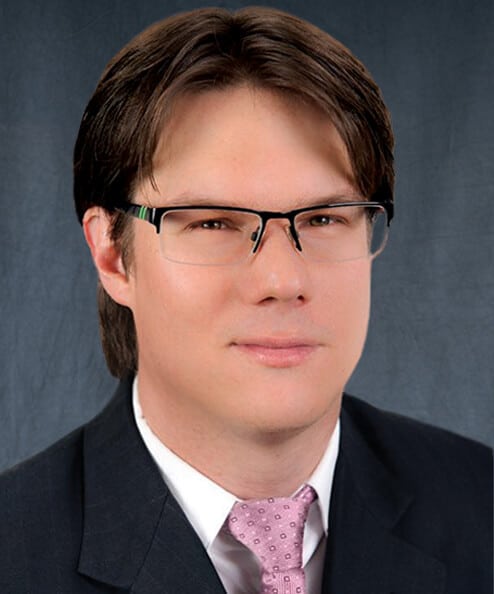Recruitment today – stuck in the past?
Bogotá, Colombia – We live and work in a fast-moving world with little stability. This paradigm is the reality in our own industry, and in all of the other industries with which we interact. Media, news stories, technologies and social networks, which are central to our lives today, will likely be obsolete and forgotten tomorrow. The dynamics of the world no longer seem to be under our control.

Our careers are a focal point of our lives, and it is unsettling to be subject to so much uncertainty and change in the way we work. As we focus on our own work processes, we inevitably ask ourselves searching questions: How can I generate value as an employee or independently? How I can make myself appealing on the job market? What do I bring to the table? How do I prepare for an interview? The selection process should be an opportunity to observe and question. Too many companies suffer the consequences of recruiting without applying appropriate criteria, sufficient time or sound judgment – all of which are key factors in finding the best talent.
Employees who leave or retire tend to take their know-how with them, and companies would obviously prefer to minimise the concomitant loss of wealth and stability. Within this state of flux, employees no longer have the same sense of loyalty, belonging and pride in constantly-changing organisations, and employers find it more and more difficult to retain employees who are now constantly searching for better options.
The challenge is clear: how can companies consistently inspire stability and loyalty in their employees, when their recruitment methods and day-to-day processes do not stand up to scrutiny?
In many ways, recruitment has become a rushed and mechanical process, which suffers from a lack of sensitivity and flexibility. Too frequently, the recruitment process is constrained by rigid criteria, automatically excluding any candidate who does not “tick all the boxes” in the job description. When this happens and organisations only consider candidates that are already a “perfect fit”, they constrain themselves by excluding many individuals whose strengths, weaknesses, skills and experiences would give them great potential to grow and develop within the organisation, if only they were given a chance.
In 2016, all businesses need innovators. Innovation is a fashionable competence across all fields, and seems to be the crucial difference between an organisation that’s successful and competitive, and one that isn’t. Organisations need to be on the lookout for high-creativity individuals who are able to think outside the box and monetise their ideas.
However, most companies use recruitment strategies that ignore the potential of creative individuals. When you use checklists, you get clones.
Fernando Vigorena, expert on employment and entrepreneurship, sarcastically asks “What manager in full possession of his rationality would intentionally hire someone who will take too long to adapt to the company’s culture?” He insists on the importance of hiring people who can “unbalance the organisational culture” and thereby foster real innovation and changes.
Although we might understand that innovation is vital for companies and employees to evolve and succeed, how successful are we in identifying innovative people? Or do we set too much store by a neat column of tick-boxes?
Today’s job descriptions are an echo from the past. Although organisations may undergo superficial shift and renewal because it is fashionable to change from day to day, functions often remain static and employees are expected to repeat roles over and over.
Companies should stop selecting employees based on what they will do in their positions, and start to select based on what they are capable of doing. The process should place more emphasis on the qualities and skills of the individual, and perhaps a little bit less on the strict performance of the functions of the position. Selection should be a conscious process, whereby it is understood that not all people fit into a certain type of company and not all companies need the same kinds of candidates.
A better selection process would suggest alternatives to the "perfect profile" in the job description, and which would give scope to hire a person coming in from a different industry, which might not “fit the profile” but could perhaps generate added value, innovation and entirely new possibilities.
The true art of recruitment is not fulfilling requirements but exercising options. In a game of chess, moving any piece should benefit the rest of the group. Every recruitment move should shake up the team to step away from conformity, attack the competition and stand out in the market.
You cannot put in the same efforts each time and expect different results, and you cannot excel with “business as usual.” With this in mind, Human Resources departments must understand their company’s culture and make recruitment choices that benefit both the company and the employees.
Selection is the essential basis of a company’s creative and productive processes. Hiring decisions can help or harm a company, and it is HR’s responsibility to come to a wise and clear understanding of what will boost individuals within organisations.
So, be sure to find a way to select the best talent because this is what will enable your organisation to innovate and stand out. Once you have the best talent, work hard to keep them, encourage your team and understand that nothing is more of a threat to success than forcing employees to fit a “perfect mould” determined by a decades-old profile that makes no contribution to innovation or competitiveness in the work environment.
 Pedro Cadavid is a Consultant at Pedersen & Partners in Colombia. Before joining the firm, Pedro was an associate consultant working at the global level for an international Executive Search company based in Bogotá. His experience has familiarized him within various industries including: consumer goods, financial services, oil & gas, logistics & operations and retail. In addition to his five years in Executive Search, Mr. Cadavid also brings with him to Pedersen & Partners years of experience in human resource management from within the FMCG sector.
Pedro Cadavid is a Consultant at Pedersen & Partners in Colombia. Before joining the firm, Pedro was an associate consultant working at the global level for an international Executive Search company based in Bogotá. His experience has familiarized him within various industries including: consumer goods, financial services, oil & gas, logistics & operations and retail. In addition to his five years in Executive Search, Mr. Cadavid also brings with him to Pedersen & Partners years of experience in human resource management from within the FMCG sector.
Pedersen & Partners is a leading international Executive Search firm. We operate 56 wholly owned offices in 52 countries across Europe, the Middle East, Africa, Asia & the Americas. Our values Trust, Relationship and Professionalism apply to our interaction with clients as well as executives. More information about Pedersen & Partners is available at www.pedersenandpartners.com
If you would like to conduct an interview with a representative of Pedersen & Partners, or have other media-related requests, please contact: Diana Danu, Marketing and Communications Manager at: diana.danu@pedersenandpartners.com
